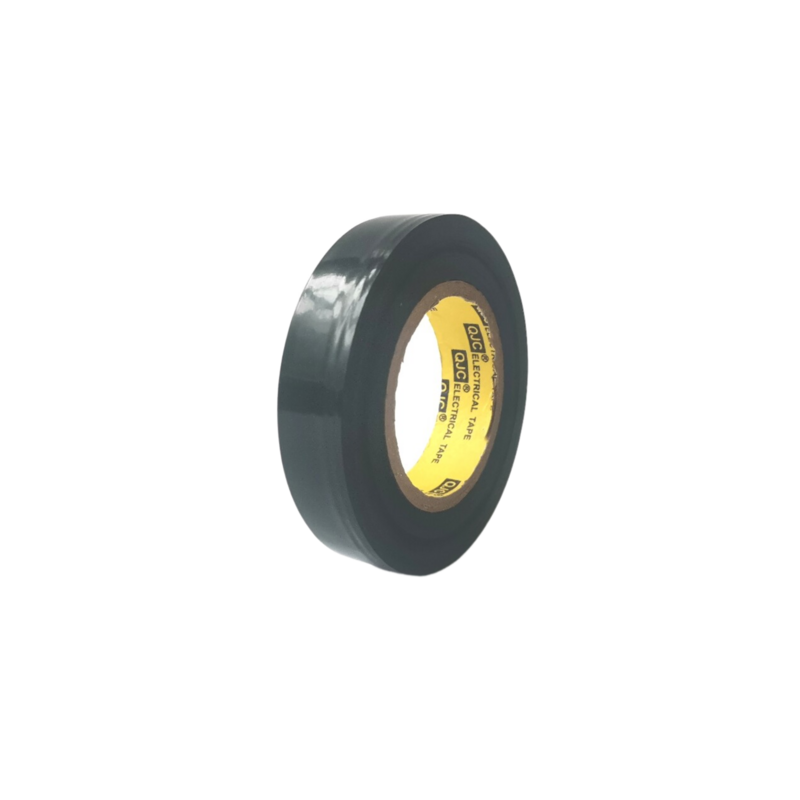Understanding Rubber Splicing Tape Uses and Applications
Rubber splicing tape, also known as self-fusing or self-bonding tape, is a versatile and valuable tool in various industries and applications. Made from rubber compounds, this tape can undergo significant elongation and is known for its excellent insulating properties. It is designed to create strong, waterproof seals and is often used in electrical, automotive, and even household applications. In this article, we’ll explore what rubber splicing tape is and where it’s commonly applied.
Characteristics of Rubber Splicing Tape
One of the key features of rubber splicing tape is its self-fusing capability. Unlike traditional tapes that have adhesive backing, rubber splicing tape bonds to itself when pressed together. This property allows it to fill irregular shapes and create a solid seal that can withstand varying temperatures, moisture, and environmental factors. Generally, rubber splicing tape comes in various thicknesses and widths, making it suitable for different applications.
Primary Uses of Rubber Splicing Tape
1. Electrical Insulation One of the most common uses of rubber splicing tape is for electrical insulation. It is used to insulate and protect electrical wires and connections. This tape is highly effective at preventing short circuits, which can occur due to exposed wires. The self-fusing property ensures that the tape conforms to the shape of the wire and creates a secure barrier against moisture and dust, thereby enhancing the longevity of electrical components.
what is rubber splicing tape used for

2. Splicing Wires In situations where wires need to be spliced or joined together, rubber splicing tape comes into play. Electricians and technicians often use this tape as it provides a robust and flexible joint. The tape is wrapped around the splice after securing the wires together, ensuring that the connection is stable and protected from external elements.
3. Automotive Applications Automotive technicians often utilize rubber splicing tape in various repairs. From securing wires in vehicle electrical systems to providing insulation for damaged cables, this tape proves essential in maintaining safety and functionality in vehicles. Its ability to handle temperature changes and its resistance to oil and chemicals make it ideal for the harsh conditions encountered in automotive environments.
4. Plumbing and HVAC Systems In plumbing and HVAC applications, rubber splicing tape is used to create airtight seals and to repair small leaks in pipes. Its waterproof nature allows it to be used in wet environments. Moreover, it can also provide insulation around pipes to prevent condensation, which could lead to water damage.
5. Outdoor and Marine Applications Rubber splicing tape is also effective for outdoor and marine applications due to its UV resistance and ability to withstand saltwater environments. Boat owners frequently use it to repair cables and connections exposed to harsh weather and water conditions. Its durability makes it a reliable choice for long-term use in outdoor installations.
Conclusion
In summary, rubber splicing tape is an invaluable tool across various fields due to its unique properties and versatility. From electrical insulation to automotive and plumbing applications, its self-fusing capability and resilience against environmental factors make it an ideal choice for both professionals and DIY enthusiasts. Whether you need to insulate wires, splice connections, or repair leaks, rubber splicing tape delivers an efficient and reliable solution. The next time you encounter a project requiring insulating or sealing, consider reaching for rubber splicing tape for its proven performance and adaptability.
-
XIANGFAN Rubber Tape-Ultimate Solutions for All Your Insulation NeedsNewsJun.24,2025
-
XIANGFAN Rubber Tape-Protection for Industrial and Residential ApplicationsNewsJun.24,2025
-
XIANGFAN Rubber Tape: Superior Safety and Sealing for Demanding EnvironmentsNewsJun.24,2025
-
XIANGFAN Rubber Tape: Reliable Solutions for Every Electrical ChallengeNewsJun.24,2025
-
XIANGFAN Electrical & Industrial Tape: Powering Reliability Across IndustriesNewsJun.24,2025
-
XIANGFAN Electrical & Industrial Tape: Excellence in Every ApplicationNewsJun.24,2025
